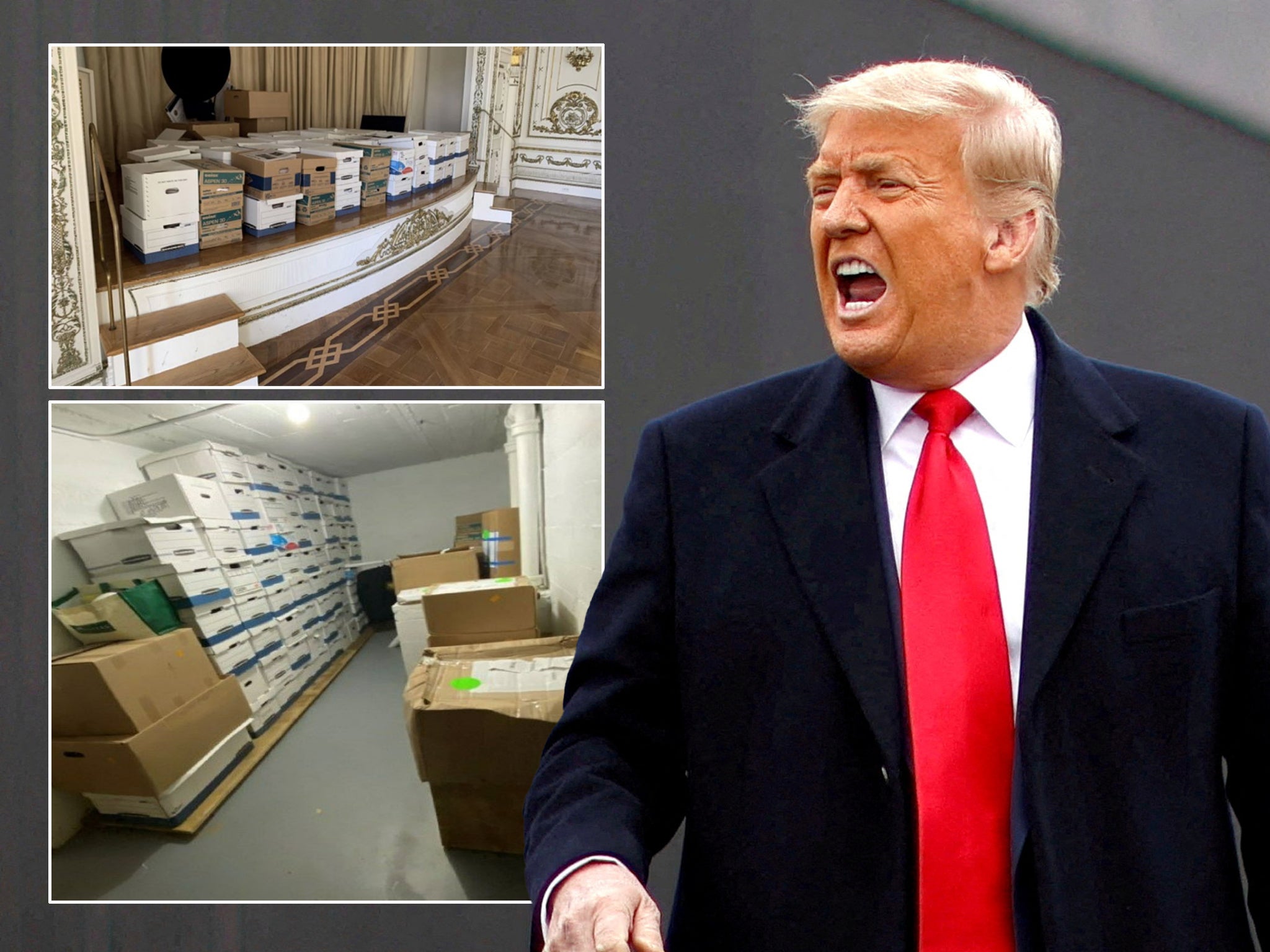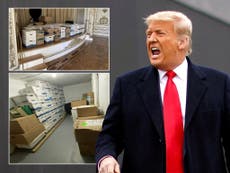Eight key takeaways from the Trump indictment
Federal indictment outlines 37 counts related to Donald Trump allegedly keeping classified documents at his home, Ariana Baio reports


Your support helps us to tell the story
From reproductive rights to climate change to Big Tech, The Independent is on the ground when the story is developing. Whether it's investigating the financials of Elon Musk's pro-Trump PAC or producing our latest documentary, 'The A Word', which shines a light on the American women fighting for reproductive rights, we know how important it is to parse out the facts from the messaging.
At such a critical moment in US history, we need reporters on the ground. Your donation allows us to keep sending journalists to speak to both sides of the story.
The Independent is trusted by Americans across the entire political spectrum. And unlike many other quality news outlets, we choose not to lock Americans out of our reporting and analysis with paywalls. We believe quality journalism should be available to everyone, paid for by those who can afford it.
Your support makes all the difference.The federal indictment against Donald Trump outlines 37 counts related to retaining classified information, willfully retaining national defence information, conspiracy to obstruct justice and more.
The indictment was unsealed on Friday (9 June) afternoon, revealing the Department of Justice’s findings after a nearly year-long investigation into Mr Trump retaining classified documents at his Mar-a-Lago estate.
Last August, the Federal Bureau of Investigation (FBI) seized boxes of documents from Mr Trump’s home, some of which included top secret records detailing a foreign nation’s nuclear capabilities, via a search warrant.
The search warrant was executed after the National Archives made multiple attempts to obtain classified documents that Mr Trump allegedly took with him when he left office in 2021.
The indictment lays out various allegations against Mr Trump and names his aide Walt Nauta as a co-conspirator.
Here are key points from the indictment:
Trump allegedly kept documents containing top secrets of US military and other national defence information
The indictment outlines 31 pieces of national defence information, labelled as “Top Secret” and “Secret”, that contained information about the military and nuclear capabilities of other countries, as well as the US military.
One document, dated from June 2020, contained information “concerning nuclear capabilities of a foreign country.”
Another, from an unknown date, had information “concerning nuclear weaponry of the United States.”
The indictment includes that the 31 documents are “all in violation of Title 18, US Code Section 793(e)” otherwise known as the Espionage Act.
Trump allegedly kept classified documents in his bathroom, bedroom and more
Photos included in the indictment show several rooms in Mr Trump’s Mar-a-Lago home where he allegedly kept boxes containing classified documents.
This includes the bathroom and shower at the Mar-a-Lago Club’s Lake Room, the White and Gold Ballroom where events took place, the business center at Mar-a-Lago, a storage room and his residence at The Bedminster Club.
Trump allegedly described a Pentagon classified ‘plan of attack’ to a book writer and staff
The indictment alleges the former president told a writer and publication “in connection with a then-forthcoming book” about a senior military official’s plan of attack against a foreign country.
Mr Trump allegedly showed the writer the supposed plan of attack with two other staffers in the room.
The interview was also recorded with Mr Trump’s knowledge and consent.
Trump allegedly showed a classified map of a country to a PAC representative
According to the indictment, Mr Trump commented on an “ongoing military operation” in a country while meeting with a representative of his political action committee at The Bedminster Club.
Mr Trump then showed the PAC representative a classified map of the country.
Trump allegedly suggested lawyers ignore a federal subpoena
When issued with a federal subpoena in May 2022 to hand over documents with classification markings, Mr Trump allegedly suggested to his lawyers to ignore the subpoena or tell the government there were no documents.
Mr Trump allegedly said he did not want “anybody looking through my boxes,” according to one of Mr Trump’s attorneys who remembered the statement in summary.
Instead, Mr Trump allegedly suggested: “What happens if we just don’t respond at all or don’t play ball with them” in response to the federal subpoena by a grand jury.
He also allegedly said: “Wouldn’t it be better if we just told them we don’t have anything here?” and “Isn’t it better if there are no documents?”
Trump allegedly directed Mr Nauta to remove boxes before an attorney could search them
After the subpoena, an attorney for Mr Trump “made it clear” to the former president that he would search boxes at Mar-a-Lago for classified documents to hand over to the government. The two coordinated a specific date and time to do so.
But when the attorney went to search the boxes, stored in the Mar-a-Lago storage room, 64 were gone and allegedly removed by Mr Nauta – at Mr Trump’s direction
Mr Nauta allegedly brought the boxes to Mr Trump’s residence and later loaded them onto a plane to fly with Mr Trump to The Bedminster Club.
Nauta allegedly made false statements to the FBI about the boxes at Mr Trump’s home
During an interview with the FBI in May 2022, Mr Nauta allegedly made false statements to agents, claiming he did not know where boxes were being stored at Mar-a-Lago and did not know they were being stored in storage before moving them to Mr Trump’s room.
Each one of Mr Trump’s 37 counts carries a $250,000 fine and potential prison sentence
Mr Trump was indicted on 31 hours of willful retention of national defence information, one count of conspiracy to obstruct justice, one count of withholding a document or record, one count of corruptly concealing a document or record, one count of concealing a document in a federal investigation, one count of scheming to conceal and one count of false statements and representations.
Each one carries a fine of $250,000 as well as maximum sentences ranging from five years to 20 years in prison.



Join our commenting forum
Join thought-provoking conversations, follow other Independent readers and see their replies
Comments